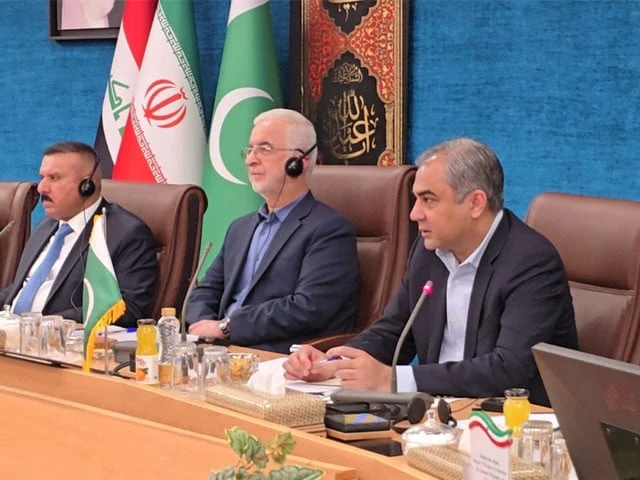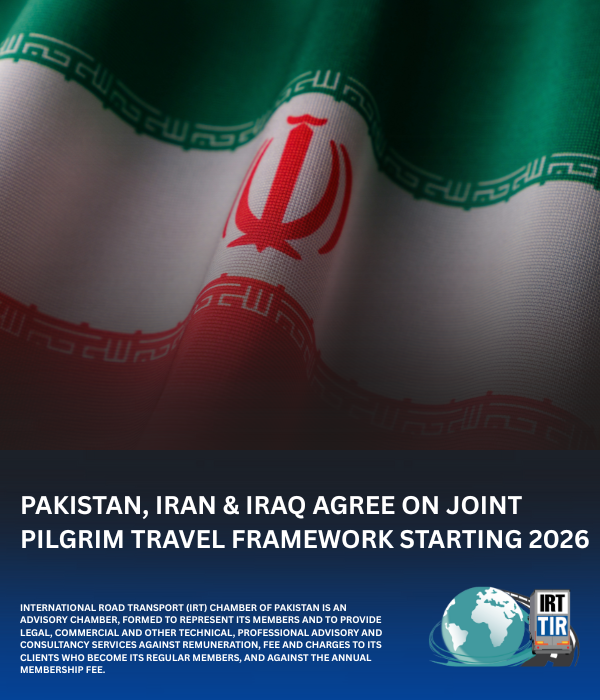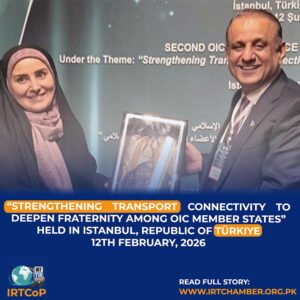ISLAMABAD – In a landmark step toward improving the pilgrimage experience, Pakistan’s Interior Minister Mohsin Naqvi announced that starting January 1, 2026, Pakistani pilgrims will only be permitted to travel to Iraq through officially registered group organisers. This change comes as part of a trilateral agreement between Pakistan, Iran, and Iraq to streamline pilgrim movement and ensure enhanced safety, order, and service standards.
The announcement was made during a high-level trilateral conference of interior ministers held in Tehran, where Minister Naqvi met with his Iranian and Iraqi counterparts to discuss coordinated strategies for managing the large annual flow of religious pilgrims.

A New Era for Pilgrim Travel
Speaking at the conference, Minister Naqvi emphasized the importance of regulated travel for pilgrims, citing issues like unregulated routes, overstays, and illegal travel that have persisted for years.
“Pilgrims travelling to Iraq and Iran are of great importance to us,” said Naqvi. “This trilateral forum will pave the way for enhanced facilities and support.”
The minister also announced that the registration process for Zaireen Group Organisers (ZGOs) has officially begun. From 2026 onwards, only pilgrims associated with registered ZGOs will be allowed entry. Independent travelers will need special embassy-issued visas, which will be granted under exceptional circumstances.
Ensuring Safety and Order
As per the new framework, these ZGOs will be held accountable for the safety, travel arrangements, and return of each pilgrim under their care. This organized system aims to eliminate unmanaged travel, reduce instances of pilgrims getting stranded, and improve crowd management during high-volume seasons such as Arbaeen and Ashura.
“The organisers will be responsible for ensuring pilgrims’ safe return,” Naqvi stated. “This system will help curb illegal travel and overstay issues.”
Minister Naqvi also acknowledged and appreciated the Iraqi and Iranian authorities for their continued efforts in managing the logistical and humanitarian challenges that come with receiving millions of pilgrims each year.
Strengthening Regional Unity
The conference further served to reinforce diplomatic ties between the three nations. Naqvi took the opportunity to thank Iranian Interior Minister Eskandar Momeni for hosting the summit and commended Iran’s leadership during recent regional tensions.
“Iran’s Supreme Leader Ayatollah Ali Khamenei stood firm and led with courage. We congratulate him and the Iranian people on this victory,” he said.
Naqvi reaffirmed Pakistan’s support for Iran, especially during its recent conflict with Israel, stating that Islamabad stood firmly with Tehran, both diplomatically and morally.
Participation of Key Officials
The meeting was attended by top regional officials including Iran’s Deputy Interior Minister Ali Akbar Pour-Jamshidian, high-ranking Iraqi representatives, Pakistani Ambassador to Iran Mohammad Mudassar Tipu, and Interior Secretary Muhammad Khurram Agha. The strong presence of senior officials underscored the significance of this trilateral initiative.
The Role of IRTCoP and the Future of Pilgrim Transport
IRT Chamber’s President Rana Asif Khan and IRT Chamber’s Balochistan Chapter Vice President Atif Khan Babukhel, in a joint statement have welcomed the establishment of a Joint Working Group by the three brotherly countries to streamline religious tourism.
Infect Pilgrims travelling to Iraq and Iran are of great importance for three countries. This trilateral forum will pave the way for enhanced facilities and support. IRT Chamber President & Vice President affirmed that IRTCoP will play pivotal in registration of “Zaireen Group Organisers”. IRTCoP soon will launch an IT Platform for the “Zaireen Group Organisers”. IRTCoP will be instrumental and helping hand of the official body for providing facilitation to the Zaireen and general tourists, passengers at Pak Iran Borders.
Conclusion
The trilateral agreement between Pakistan, Iran, and Iraq marks a new chapter in regional cooperation, ensuring that religious travel is safe, efficient, and dignified for all pilgrims and general tourists. As 2026 approaches, group-based travel models, supported by IRTCoP IT Based Digital Plate Form for facilitation, will redefine the future of spiritual journeys for millions of Pakistanis.



